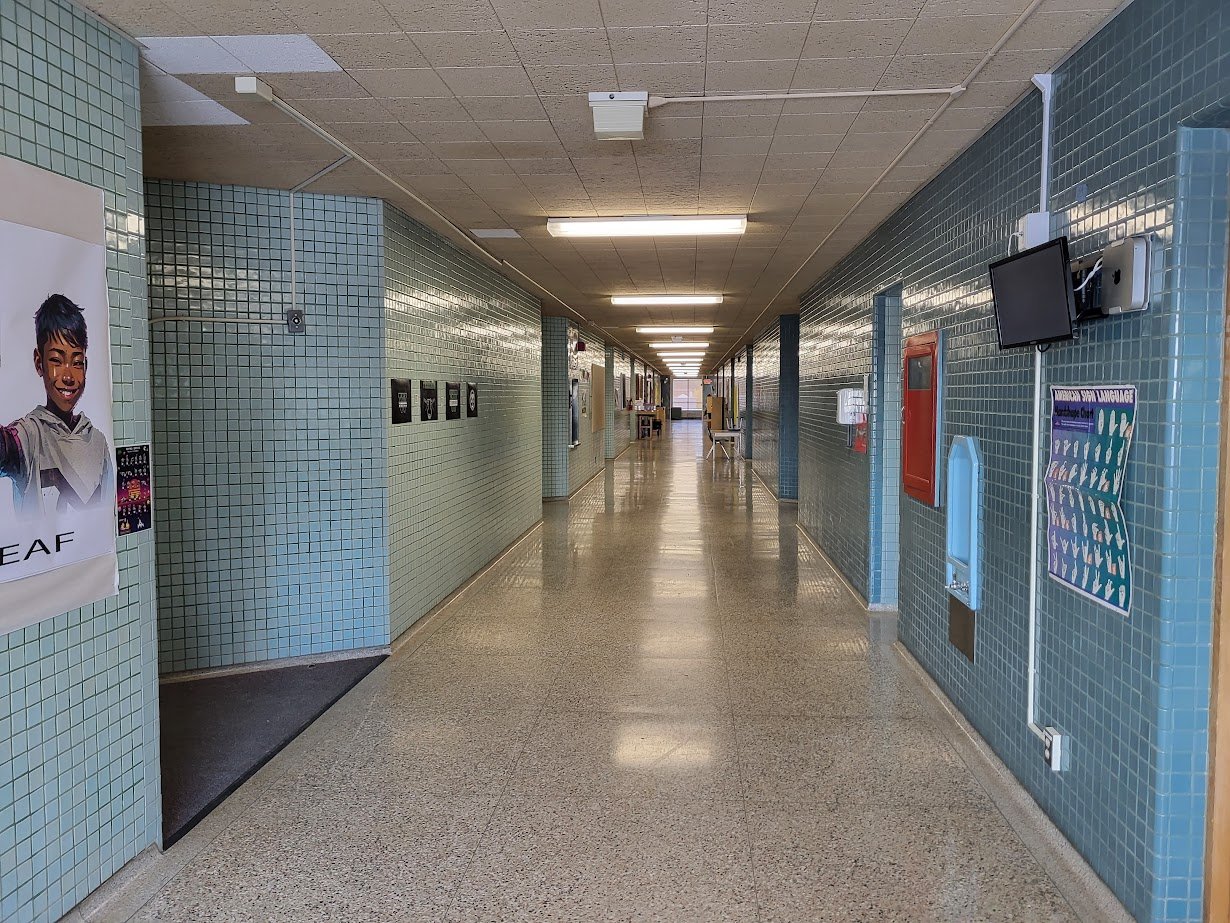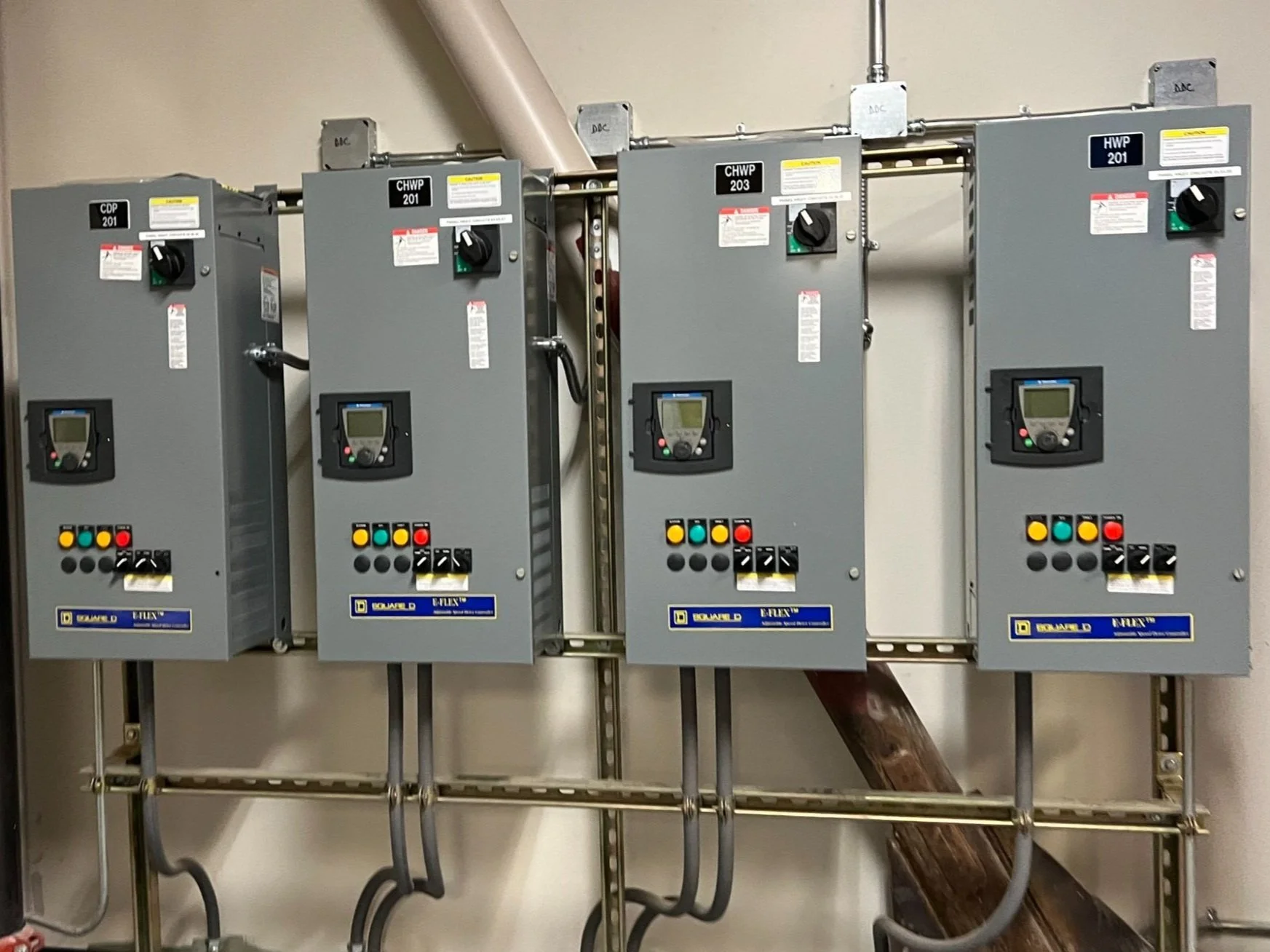
Washington State School for the Deaf
The challenge
In 2010, the Washington State School for the Deaf invested in a central services building to serve the campus. The building provided an innovative ground source heat pump system utilizing an open loop well for heat rejection and extraction. The system was designed to provide decarbonized heating and cooling and be expanded throughout the campus.
Unfortunately, the building was having operational issues...
The system was designed to be carbon neutral, but with the system performing poorly, and the back-up boilers providing heating, the owner needed help expanding the system into the new $45M academic facility.
MEP Due Diligence
To solve the HVAC performance issues, the team dug in. System diagrams were developed, pumps tested, and a deep dive into the DDC. A controls contractor, a well specialist, and an electrical contractor was brought in to help trouble shoot the system and determine a root cause. Once it was determined why the system was operating poorly, a repair scope of work was developed. The team developed the scope, estimated the costs, and assisted the client in the bid process. With engineering input and direct oversight of the contractor’s progress, the repair project was successful. The Pacific ECS team worked then performed a comprehensive functional test of the repaired system to ensure it was functional. This provided confidence to the owner that they could utilize the system with the new CDHY Academic Building.
Take Aways:
Restored performance of open loop ground source heating and cooling plant that “hadn’t worked” since 2010.
Tested system, developed scope of work, assisted state with contract solicitation, and oversaw repair of ground source heat pump system.
Sourced replacement parts for VFDs, allowing owner to restore performance saving $70k in replacement costs.
Obtained $60k ETO incentive to offset installation costs.
MEP Owner’s Representative
The $45M CDHY Academic Building was a design-build new construction project on the School for the Deaf campus. The campus wanted to utilize the existing ground source heating and cooling system to serve the new building. However, the non-functional central plant provided a large risk that the design-build contractor was unwilling to take. As such, the contractor would not utilize the system and proposed a design alternative utilizing 32 roof top packaged heat pump units. Working with the DB contractor, design team, and owner, led by the Pacific ECS team developed a solution. The concept would utilize the central plant, honor the campus’ prior investments, and minimize risk for the contractor. The strategy when coupled with the positive results from the MEP due diligence, was acceptable to all parties. As a bonus, the strategy proved to be the most economical solution from both a first cost and total cost of ownership perspective. Once the system was selected, design reviews began, negotiation of the budget were undertaken, and construction began. The project successfully modernized the central plant and coupled the new building with the existing central plant and controls system providing long term value. In the fall of 2024, the system was commissioned and is functioning as intended.
Key Take Aways
Integrated the central plant into the $45M new academic building reducing the first cost and the total cost of ownership for the campus.
Developed a comprehensive Owner’s Project Requirement (OPR) to communicate the school’s needs to the project team.
Developed the DB MEP teaming criteria and design direction for the project team.
Performed third-party reviews of the contract documents. Ensuring that the design strategy integrated with the campus standards and control strategy.
Work with the owner during pricing, including a review of the nearly 1,000-page cost amendment identifying excess costs, contract risks to the owner, and negotiating solutions used by the owner’s team.
*Work completed by Pacific ECS staff at prior employer. 




